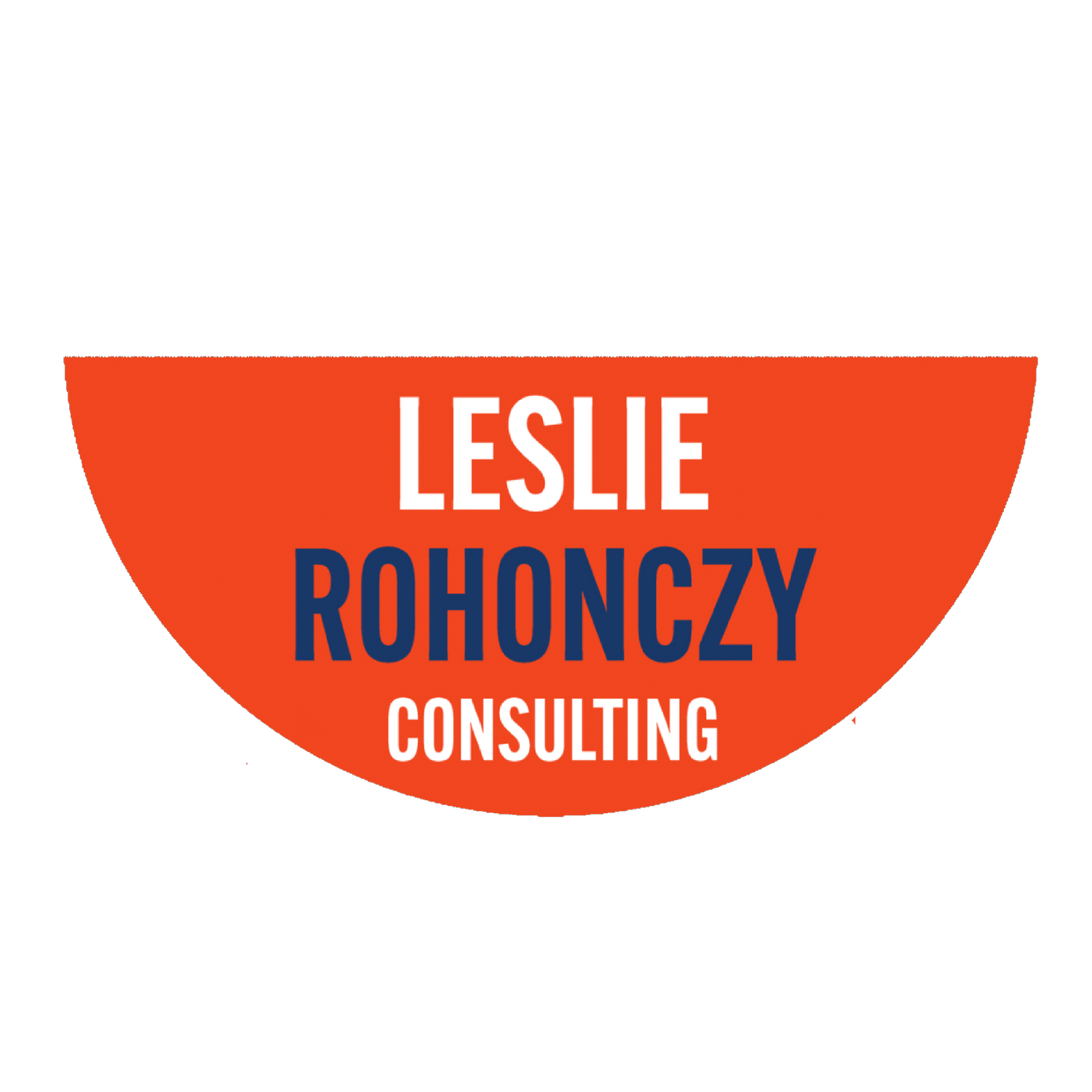LESLIE ROHONCZY | APRIL 2024
Last week, two coaching conversations left me cheering with joy, and celebrating the courage and determination of two remarkable individuals.
As an executive coach, I have the privilege of witnessing the leadership development journeys of clients who find themselves at a crossroads, wondering how to advance their careers or navigate difficult work environments. And whether they’re looking for strategies to get promoted, or for ways to protect themselves in a toxic culture (or for help in making the difficult decision to leave), the journey towards career fulfillment demands courage.
Recently, I had the pleasure of celebrating with a coaching client who, after months of deep dives into leadership EQ and coaching, bravely addressed a gap identified by her leader. At the beginning of our coaching session, she proudly announced that she had gotten the promotion to a leadership role she’d been working so hard for! I was so excited, a resounding "WOOHOO!" flew out of my mouth!
That same afternoon, I had a very different conversation. It was a heartfelt coaching chat with a senior leader, who shared that she’d finally found the courage to leave her toxic work environment. She spoke with such brave resolve about her pivotal decision, and I was truly inspired by her. And, you guessed it, another resounding "WOOHOO!"
To be clear, I’m not a habitual “WOOHOO-er”. But I had the same reaction to these two very different situations because I was so thrilled by their courage.
Coaching clients invest in their own growth and development with the willingness to take a courageous look at their gaps, assumptions, aspirations, strengths, and shortcomings. They embrace and explore the gift of feedback. They identify and work hard for what they most want from their career. They set boundaries, and then enforce them when those boundaries are crossed. They bravely make a change when opportunity comes calling their name. And they make empowering decisions like these two examples, putting themselves well on the path to healthier, fulfilling, personal and professional growth opportunities!
Unlocking Your "WOOHOO" Moment:
There will be many triumphs, rough patches, and transformations throughout our careers, and no matter whether we’re trying to secure a long-awaited promotion, or to navigate a change in pursuit of greater fulfillment, our courage and resilience will be the cornerstones of our success.
Through personalized guidance and support, coaching programs are tailored to address individual unique needs, personalities, and aspirations. Imagine what might be possible for you if you invested in honing your essential leadership skills, growing your emotional intelligence, and mastering the art of effective communication. From cultivating resilience in the face of adversity to fostering a growth mindset that fuels innovation, coaching equips you with the tools and mindset to overcome obstacles and seize opportunities. By investing in executive coaching, you are investing in your future success, unlocking new possibilities for advancement, fulfillment, and leadership excellence.
If you’re navigating a career decision, or coaching someone who is, here are 5 aspects of the career journey with questions to help you reflect on your own courageous career aspirations (hot tip for leaders: you can use these questions to coach your employees during career development discussions):
1. DEFINE CAREER SUCCESS
What is your definition of ‘career success’? How does this definition support you? And how might it limit you?
Imagine your ideal work environment where you feel most fulfilled and energized. What values and culture would it embody, and how does this differ from your current situation?
Reflect on the values, priorities, and culture dynamics in your current workplace. How do they align with your personal values, priorities, and working style preferences?
2. ADDRESS GAPS
What feedback have you received in your current role about an area for growth or improvement?
How are you leveraging this feedback to propel your career forward?
What strengths do you possess that can help you address your gaps, and how will you leverage them?
3. DECISION-MAKING
If you’re facing a challenging career decision, what factors are influencing your choice?
What outcomes are you hoping to achieve?
What decision would your ‘head’ make? Your ‘heart’? Your ‘gut’? How does each perspective inform or influence your decision?
4. TAKING ACTION
What would you do if you felt more ‘brave’? What’s holding you back from doing that?
What do you need to see/hear/feel/do, in order to take more courageous action? What steps can you take today, this week, and this month?
Who could help you build the professional skills and experience you need, including stretch assignments or additional training opportunities?
Reflecting on your long-term career aspirations, how can you align your actions today with your future goals?
5. COURAGEOUS MINDSET
Considering the importance of a courageous mindset in career choices, when navigating career decisions and transitions, how will you cultivate and maintain your resilience in the face of uncertainty or setbacks?
What personal reward will you give yourself for your bravery?
What self-compassion messages will you give yourself when you feel uncomfortable, or when things don’t go the way you hoped they would?
If you want to pursue your own ‘WOOHOO” career moment, visit www.leslierohonczy.com to learn more about how my executive coaching and leadership development services can help propel you towards success.



